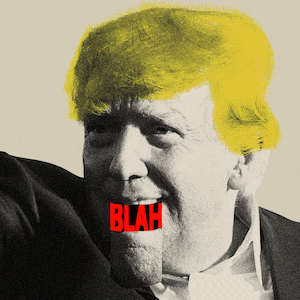America First Legal and former Trump White House senior adviser Stephen Miller, the legal group’s president, have secured headlines with lawsuits allegedly deploying)" href="https://urldefense.com/v3/__https://aflegal.org/about/__;!!LsXw!QTHW7HosGqaGIOW5lRNIenm6plM9GFKKbrwXP-V_XjdTSRk0rel_boFQZIB8cyxnB2ljs5yTKb9AuIfDEWOyh2W0hbf_9DG92o0KHA$">deploying “some of the nation’s best legal, political, and strategic thinkers to challenge” the radical left and the “woke” agenda. Yet the group’s securities fraud lawsuit against Target shows a sanctionable legal and strategic blunder.
The lawsuit)" href="https://urldefense.com/v3/__https://aflegal.org/litigation/brian-craig-v-target-corporation-et-al/__;!!LsXw!QTHW7HosGqaGIOW5lRNIenm6plM9GFKKbrwXP-V_XjdTSRk0rel_boFQZIB8cyxnB2ljs5yTKb9AuIfDEWOyh2W0hbf_9DEoyQQO6w$">lawsuit claims that Target somehow defrauded investors because its stock went down after it sold LGBTQ merchandise and ran a Pride campaign. Although it is true that conservatives reacted negatively with protests and boycotts, and that Target’s stock price declined around that time, nothing about the Pride campaign or backlash carries even the slightest whiff of fraud.
To try to cobble a fraud claim out of nothing, Miller’s outfit claims that Target’s statements about its board monitoring for risks (like boycotts and negative press coverage) must have been fraudulent because Target ran a Pride campaign (as did many other retailers). Bafflingly, it makes this claim after also complaining about Target’s long history of supporting LGBT rights.
Functionally, the litigation boils down to griping about how America First Legal fundamentally disagrees with Target’s operational decisions, including the 2023 Pride campaign. But this value judgment does not establish anything approaching securities fraud.
To be clear, the lawsuit against Target lacks any plausible basis.
At a basic level, securities fraud lawsuits require allegations that a company’s false statements or omissions somehow caused someone to purchase or sell securities at a price distorted by fraud.
The initial complaint filed in this lawsuit failed this basic test. It alleged that the plaintiff continues to hold stock he bought on April 11. Unless the plaintiff somehow travels back and forth through time, he could not have been tricked into buying the stock by statements about risk monitoring Target made weeks later on April 25.
Taking another stab at it, the lawyers involved recently filed an amended complaint and another press release. Attempting to solve the time travel problem, it adds additional plaintiffs who bought stock at different times and claims that Target’s previously filed annual reports were somehow fraudulent.
This second try also appears doomed to fail. The basic case makes no sense.

Pride Month merchandise at a Target store on May 31, 2023, in San Francisco, California.
Justin Sullivan/Getty ImagesThe lawyers allege that the efficient market for Target’s stock incorporated all public information about Target. Thus, the market also surely knew, as they allege, that Target had a long history of supporting LGBT rights despite “consumer groups” and “conservative commentators repeatedly” warning Target that its support for LGBT rights could cost it some customers.
Despite this, they allege that the market was somehow misled to believe that Target would not encounter this risk or that Target did not monitor it.
The whole thing makes no sense. Target’s 2021 annual report even explicitly warned that it might face “consumer boycotts” because of its positions on sensitive issues.
The lawsuit itself resembles a fraud.
America First Legal touts its expertise and claims to be waging sophisticated legal fights to advance conservative causes. Yet, the Target litigation reveals an entirely frivolous filing, wasting Target’s money on legal fees and the court’s time to review it.
America First Legal benefits from these junk filings because it issues press releases and draws publicity allowing it to recruit more donors. Much like the scam non-profit)" href="https://urldefense.com/v3/__https://www.justice.gov/usao-sdny/pr/two-sentenced-prison-we-build-wall-online-fundraising-fraud-scheme*:*:text=Starting*20in*20approximately*20December*202018,ultimately*20known*20as*20**BWe*20Build__;I34lJSUlJSUl4oCcJQ!!LsXw!QTHW7HosGqaGIOW5lRNIenm6plM9GFKKbrwXP-V_XjdTSRk0rel_boFQZIB8cyxnB2ljs5yTKb9AuIfDEWOyh2W0hbf_9DFhNhmbDQ$">scam non-profit dedicated to building a border wall, this litigation appears aimed at fundraising and messaging to conservative donors. But it doesn’t appear to be even a half-serious attempt to win a securities fraud claim.
Since filing the Target litigation, the lawyer leading the effort, Jonathan Berry of Boyden Gray, has continued in the same vein, making dubious legal claims about business and securities law in pursuit of headlines. Consider his most recent op-ed with former Trump Attorney General William Barr at The Wall Street Journal. The op-ed’s odd claims about Delaware law led Delaware’s Vice Chancellor J. Travis Laster to take to LinkedIn and describe the op-ed as “doubly wrong” and “profoundly misguided.” It also led a leading conservative law professor, Lawrence Cunningham, to write to The Journal and explain that Barr and Berry had overstated their claims.
The Target securities litigation is not an opinion page, and real consequences should follow for getting the law flat wrong.
The lawyers involved, who clearly do not understand securities law, presumably thought they could file a claim with losing the case as the downside risk. But securities litigation carries higher stakes. If the court does its job and follows the law, this should result in sanctions and judicial findings that America First Legal, and its co-counsel Jonathan Berry of Boyden Gray, filed frivolous litigation.
Federal law imposes intense guardrails for securities fraud litigation because Congress found that abusive securities fraud litigation threatened the American economy.
In 1995, Congress passed the Private Securities Litigation Reform Act, putting in place protections designed to ensure that public companies like Target would not face expensive yet meritless fraud lawsuits whenever a company’s stock price goes down for some reason.
The lawyers involved in this fiasco face real exposure because the Reform Act requires courts to impose sanctions against parties or attorneys that raise claims in “any complaint” that are not warranted by existing law or by a nonfrivolous argument for a court to modify the law. This means that the egregious problems with the initial securities fraud complaint do not simply go away because the lawyers decided to file another dubious complaint. The statute specifically requires)" href="https://urldefense.com/v3/__https://www.law.cornell.edu/uscode/text/15/78u-4__;!!LsXw!QTHW7HosGqaGIOW5lRNIenm6plM9GFKKbrwXP-V_XjdTSRk0rel_boFQZIB8cyxnB2ljs5yTKb9AuIfDEWOyh2W0hbf_9DGk0rhgCQ$">specifically requires courts to review whether any party has pursued frivolous claims or defenses. If the court finds the filing frivolous, the statute directs that “the court shall impose sanctions” and that the court should include the other side’s legal fees and costs arising from the frivolous litigation.

Stephen Miller, former aide to former President Donald Trump, leaves the U.S. District Courthouse on April 11, 2023, in Washington, D.C.
Kevin Dietsch/Getty ImagesSecurities fraud litigation differs from ordinary litigation because the law itself requires courts themselves to consider sanctions in these cases, instead of only considering the issue when a party makes a motion for sanctions.
Despite the requirement for courts to conduct a mandatory sanctions review at the conclusion of adjudication and “include in the record specific findings regarding compliance by each party and each attorney representing any party,” some research)" href="https://urldefense.com/v3/__https://papers.ssrn.com/sol3/papers.cfm?abstract_id=2377351__;!!LsXw!QTHW7HosGqaGIOW5lRNIenm6plM9GFKKbrwXP-V_XjdTSRk0rel_boFQZIB8cyxnB2ljs5yTKb9AuIfDEWOyh2W0hbf_9DGBGAsr8g$">some research indicates that many courts have failed to conduct this review.
This does not surprise.
Many federal judges lack familiarity with securities fraud litigation, and the parties do not usually bring this mandatory requirement to the court’s attention. Hopefully, the press coverage surrounding this litigation—or some amicus briefing—will ensure that the court understands its responsibility and mandatory legal obligation here.
If the court sanctions the attorneys involved for filing meritless litigation, expect state bar associations to take notice.
Regrettably, the lessons from Rudy Giuliani’s disciplinary proceedings appear not to have reached the counsel here. The Washington, D.C. Bar’s hearing committee recommended that Giuliani be disbarred for filing meritless litigation when he had “no legitimate legal grounds)" href="https://urldefense.com/v3/__https://s3.documentcloud.org/documents/23868906/2023-07-07-issuance-letter-and-hearing-committee-report-giuliani.pdf__;!!LsXw!QTHW7HosGqaGIOW5lRNIenm6plM9GFKKbrwXP-V_XjdTSRk0rel_boFQZIB8cyxnB2ljs5yTKb9AuIfDEWOyh2W0hbf_9DEuR4RjaQ$">no legitimate legal grounds” to do so.
State bars will need to continue making examples of these lawyers until the misconduct stops.
Benjamin P. Edwards is a Professor of Law at the William S. Boyd School of Law at the University of Nevada, Las Vegas. He is the current Chair of the Securities Regulation Section for the Association of American Law Schools.










